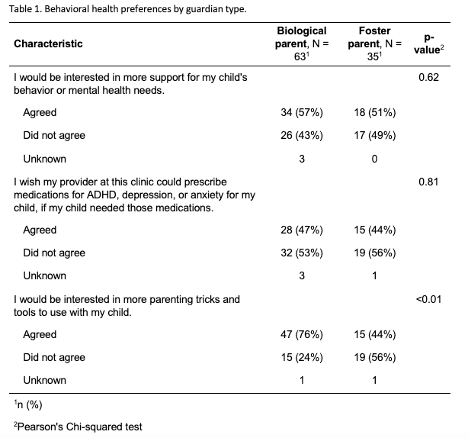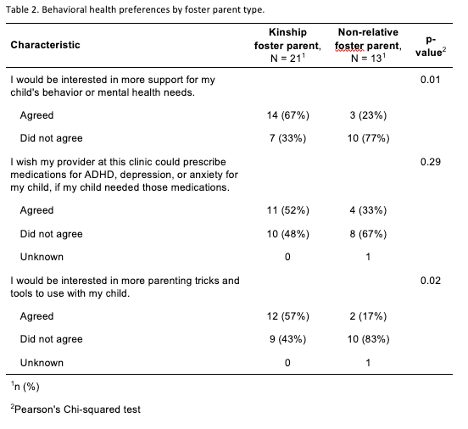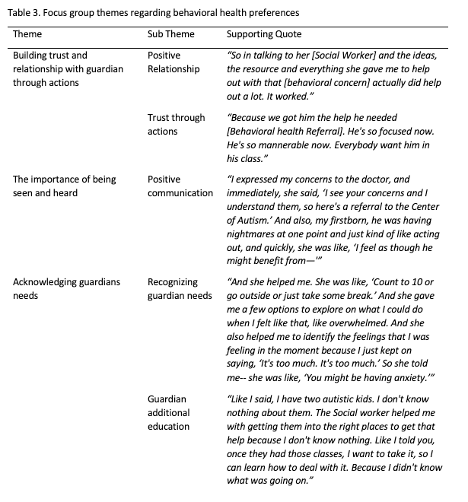Mental Health
Session: Mental Health 1
559 - Behavioral health preferences among foster and biological families in a primary care clinic for families with social complexity
Sunday, May 5, 2024
3:30 PM - 6:00 PM ET
Poster Number: 559
Publication Number: 559.2033
Publication Number: 559.2033
- ES
Emily A. Spengler, MD (she/her/hers)
Assistant Professor
Drexel University College of Medicine / St. Christopher's Hospital for Children
Philadelphia, Pennsylvania, United States
Presenting Author(s)
Background: Children with a history of trauma, including those with child welfare involvement, are more likely to have behavioral health needs. Foster parents generally desire behavioral health support, however there is concern for overuse of psychotropic medications for children in foster care. Less is known about what specific behavioral support is desired and valued by families in the primary care setting.
Objective: To determine 1) behavioral health preferences of families in a primary care clinic specializing in children facing social complexity and whether 2) preferences vary by guardian type.
Design/Methods: We investigated family preferences of behavioral health support in a primary care clinic for social complexity via surveys and focus groups. Participants were recruited based on convenience sampling and outreach to a random sample of patients. Focus groups and surveys were anonymous and guardians were compensated with gift cards. We tested differences in preferences by guardian type using Pearson’s Chi-squared test. Thematic analysis was applied to the qualitative data to identify themes and patterns from guardians’ responses.
Results: Of 101 families surveyed, 63 were biological parents, 34 were foster parents (21 kinship; 13 non-relative). Six focus groups of foster parents, biological parents, and Spanish-speaking parents were completed to further explore preferences (24 parents: 12 biological and 12 foster). All guardian types were interested in support for behavioral health needs. Foster parents had no greater interest in psychotropic medications than biological parents. Biological parents had desire for direct parenting support (76% vs 44%, p < 0.01) (Table 1). Kinship parents had greater interest in behavioral health support (67% vs 23%, p = 0.01) and direct parenting support (57% vs 17%, p 0.02) than non-relative foster parents (Table 2).
Focus groups (Table 3) revealed the importance of trust and relationships between patients and clinicians when addressing behavioral health, and appreciation for when care teams acknowledged and addressed guardian stress and needs.
Conclusion(s): These findings suggest that families want behavioral health support in the primary care clinic. Biological and kinship parents have a particular preference for direct parenting support. All desire a trusting relationship with clinicians who acknowledge family stress as part of holistic behavioral health treatment. Inclusion of primary care-based behavioral support may help promote optimal wellbeing among children with social complexity.



